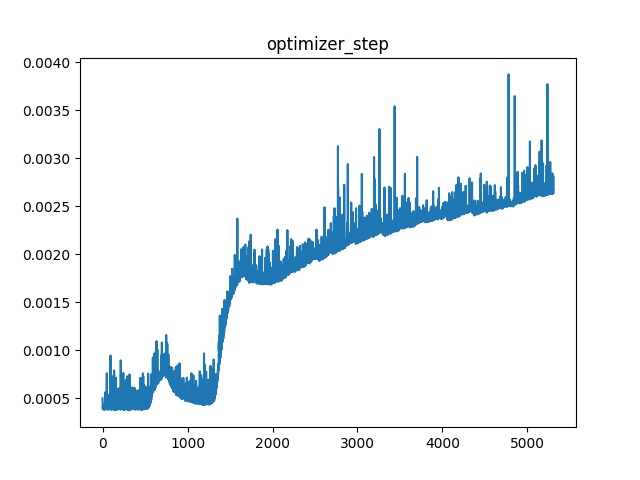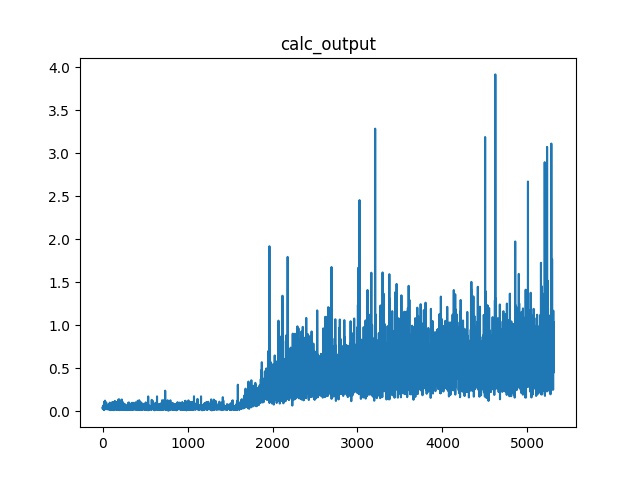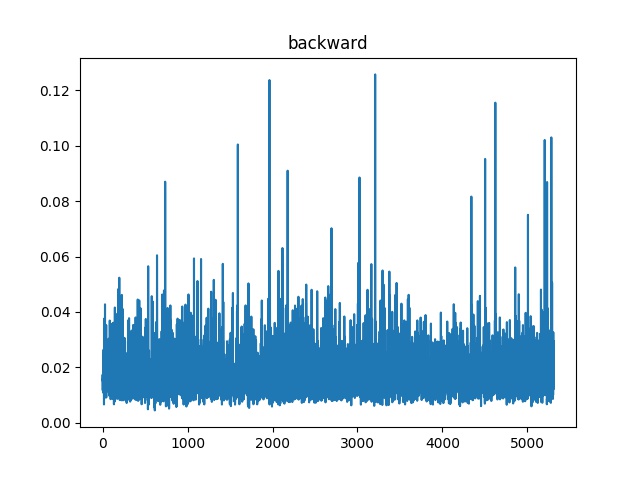I am training a network with the following model design and training process:
class SiameseGCGCN(nn.Module):
def __init__(self, W2V, sent_max_len):
super(SiameseGCGCN, self).__init__()
# network configure
self.embeddings = torch.FloatTensor(W2V.values())
self.num_filter = 100 # number of conv1d filters
self.window_size = 1 # conv1d kernel window size
self.vector_size = 200 # w2v vector size
self.step_size = sent_max_len # sentence length
nfeat = 2 * self.num_filter
nhid = 50 # graph hidden size
dropout = 0.5
# word2vec input layer
self.embedding = nn.Embedding(self.embeddings.size(0), self.embeddings.size(1))
self.embedding.weight = nn.Parameter(self.embeddings)
self.embedding.weight.requires_grad = False
# text pair embedding component
self.encoder = nn.Sequential(
nn.Conv2d(in_channels=1,
out_channels=self.num_filter,
kernel_size=(self.window_size, self.vector_size)),
nn.ReLU(),
nn.MaxPool2d(
kernel_size=(self.step_size - self.window_size + 1, 1)))
# graph transformation component
self.gc1 = GraphConvolution(nfeat, nhid)
self.gc2 = GraphConvolution(nhid, nhid)
self.dropout = dropout
# graph aggregation component
self.regressor = nn.Sequential(
nn.Linear(nhid, 1),
nn.Sigmoid())
def forward(self, x_l, x_r, adj):
# index to w2v
x_l = self.embedding(x_l)
x_r = self.embedding(x_r)
# text pair embedding
batch, seq, embed = x_l.size()
x_l = x_l.contiguous().view(batch, 1, seq, embed)
x_r = x_r.contiguous().view(batch, 1, seq, embed)
x_l = x_l.detach()
x_r = x_r.detach()
x_l = self.encoder(x_l)
x_r = self.encoder(x_r)
x_l = x_l.view(-1, self.num_filter)
x_r = x_r.view(-1, self.num_filter)
x_mul = torch.mul(x_l, x_r)
x_dif = torch.abs(torch.add(x_l, -x_r))
x = torch.cat([x_mul, x_dif], 1)
# graph transformation
x = F.relu(self.gc1(x, adj))
x = F.dropout(x, self.dropout, training=self.training)
x = self.gc2(x, adj)
# graph aggregation
x = torch.mean(x, dim=0)
out = self.regressor(x)
return out
and the following training method:
def train(epoch):
t = time.time()
outputs = []
loss_train = 0.0
for i in idx_train:
# gc.collect() # !!!!!!!!!!!!!!!!!!
print(i)
feature_l = Variable(features_l[i])
feature_r = Variable(features_r[i])
# g_feature = Variable(g_features[i])
adj = Variable(adjs[i])
label = Variable(torch.FloatTensor([labels[i]])) # must add []
model.train()
optimizer.zero_grad()
output = model(feature_l, feature_r, adj) # what if batch > 1 ?
outputs.append(output.data)
loss = nn.BCELoss()(output, label)
loss_train += loss.data[0] # !!!!! notice, must use .data[0], otherwise memory keep increasing. The graph keep increasing.
loss.backward()
optimizer.step()
loss_train = loss_train / len(idx_train)
acc_train = bc_accuracy(torch.stack(outputs),
labels[torch.LongTensor(idx_train)])
# Evaluate validation set performance separately,
# deactivates dropout during validation run.
loss_val, acc_val = test(model, features_l, features_r, g_features, adjs, labels, idx_val)
print('Epoch: {:04d}'.format(epoch + 1),
'loss_train: {:.4f}'.format(loss_train),
'acc_train: {:.4f}'.format(acc_train),
'loss_val: {:.4f}'.format(loss_val),
'acc_val: {:.4f}'.format(acc_val),
'time: {:.4f}s'.format(time.time() - t))
However, I found the training time increases with each for iteration.
At the beginning, each second can process about 10 samples. But after about 1500~2000 iterations, the time increased to about 1 second per sample, and will keep increasing.
I analyzed the time for each step in the for loop of the train method. I found that the following two steps’ time are increasing:
output = model(feature_l, feature_r, adj) # what if batch > 1 ?
optimizer.step()
For optimizer, I use Adam.
optimizer = optim.Adam(parameters,
lr=args.lr, weight_decay=args.weight_decay)
I debugged for a few days and try to find similar problems on this forum and google sites, but haven’t got the solution for my case. So I want to ask why this happen, what caused my network training speed slows down? Thanks!
This image shows the speed of optimizer.step():

This image shows the speed of calculate output:

This image shows the speed of backward step:

For other steps, seems the speed don’t change too much with different loop iterations.